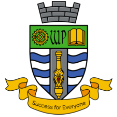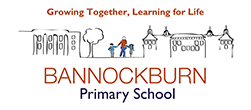English
The WPGs’ English Department Vision Statement
The WPGs’ English Department is committed to ensuring that all pupils strive for EXCELLENCE and our ambition is to make expected or make greater than expected progress. As English is the foundation of our students’ learning, we know that it holds significant implications to our students’ futures. A successful English student is able to communicate clearly and confidently using sophisticated vocabulary both orally and in writing. Furthermore, she can read and understand a range of texts so she can engage with the wider world through a more analytical lens. We want our girls to become critical thinkers as the next generation of our society. Moreover, it opens infinite doors of opportunities so that our students can navigate a complex society using their own informed voice. We want our girls to be empowered.

Key Stage 3
Our KS3 (years 7-9) curriculum is mapped backwards from the English Literature and English Language GCSE course so that we perfectly equip our girls with the correct skills which enable them to be successful in year 11. We are extremely proud of our rich, inclusive and engaging curriculum which has been constructed around the needs of our girls. This means that we begin teaching important skills such as language analysis and writing in year 7 so that they are ready to tackle the demands of their GCSEs in year 10. Our KS3 curriculum involves studying a diverse range of texts from a range of writers with different voices from a variety of cultural backgrounds as well as non-fiction and writing. Some of the exciting texts we study include ‘Animal Farm’, dystopian short stories, ‘Wolf Brother’, ‘The Tempest’ and ‘The Fire People’ poetry collection. We also ensure that we explicitly teach writing skills and so students will learn to write for different purposes: to argue, to persuade and to describe.
Our demanding KS3 curriculum is constantly being revised and revisited to ensure that we are meeting the needs of both our high prior attainers and those girls who need more support.
One of our main goals at KS3 is to foster a love of reading and we have implemented reading for pleasure lessons wherein all the girls in a year group participate in the reading a shared novel. We model fluency of reading from the teacher so that we can attempt to accelerate the reading levels of our girls. We also use reciprocal reading strategies as well as the direct instruction of explicit vocabulary. In addition, we ask all our girls to choose their own Accelerated
Reader novel and encourage them to read weekly and write about it in their reading journal.
KS3 Learning Journey: KS3 English Curriculum Map

Key Stage 4
AQA GCSE
At KS4 pupils follow a rigorous programme of study that covers a variety of different texts and genres. Pupils will read plays, novels, poetry and an array of non-fiction writing. We aim to develop our pupils’ understanding of written texts and how to analyse their effectiveness. Pupils also work on their own writing skills to write effectively for both audience and purpose. We assess regularly so both parents and pupils are aware of progress in both Language and Literature.
Year 10
We teach AQA Literature and the AQA Language GCSEs together over a two-year course.
In year 10 students will begin their KS4 journey by exploring Dickens’ ‘A Christmas Carol’. We then focus on teaching J.B. Priestley’s play ‘An Inspector Calls’ and finish Year 10 with Shakespeare’s Macbeth. We also continue teaching the English Language course which assesses two main skills: reading and writing. In additional, students will be assessed on a speaking and listening component.
Year 11
At the start of Year 11, students will complete the final Literature unit, which is the Power and Conflict Poetry Anthology and Unseen Poetry. Afterwards, the English Department works on exam skills to ensure that students are fully prepared for their GCSE exams. The English Department strives for success, so we offer a range of extra curriculum support from wave one intervention in the classroom, to a ‘Reaching for Success in English GCSE club as well as further intervention where necessary.
Assessment
- 100% written exams
- GCSE English Language Paper 1 1hr 45 minutes
- GCSE English Language Paper 2 1hr 45 minutes
- GCSE English Literature Paper 1 1hr 45 minutes
- GCSE English Literature Paper 2 2hrs 15 minutes
Speaking and Listening component assessed internally and externally moderated.
KS4 Learning Journey: KS4 Visual Curriculum Map GCSE Literature & GCSE Language








